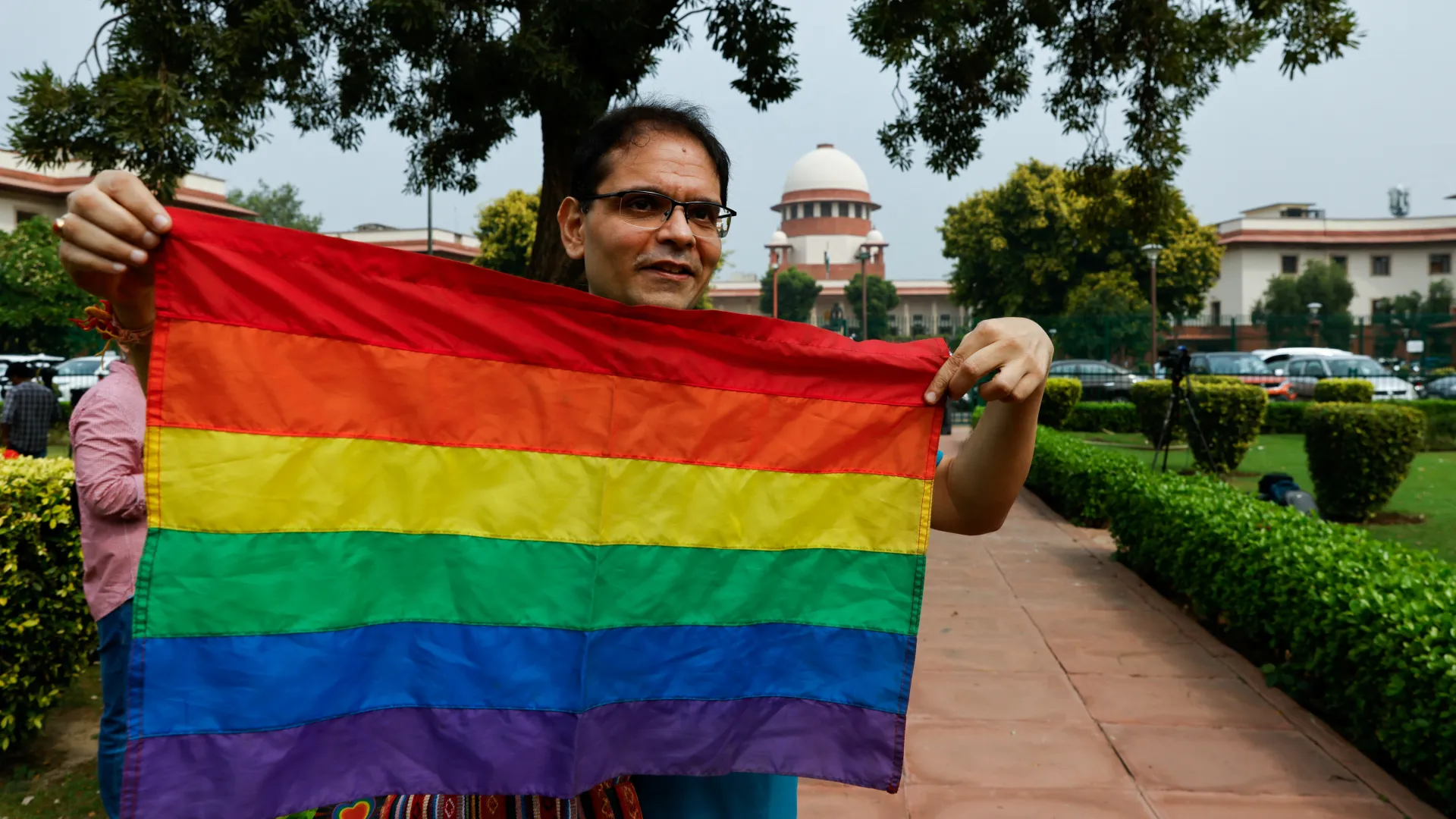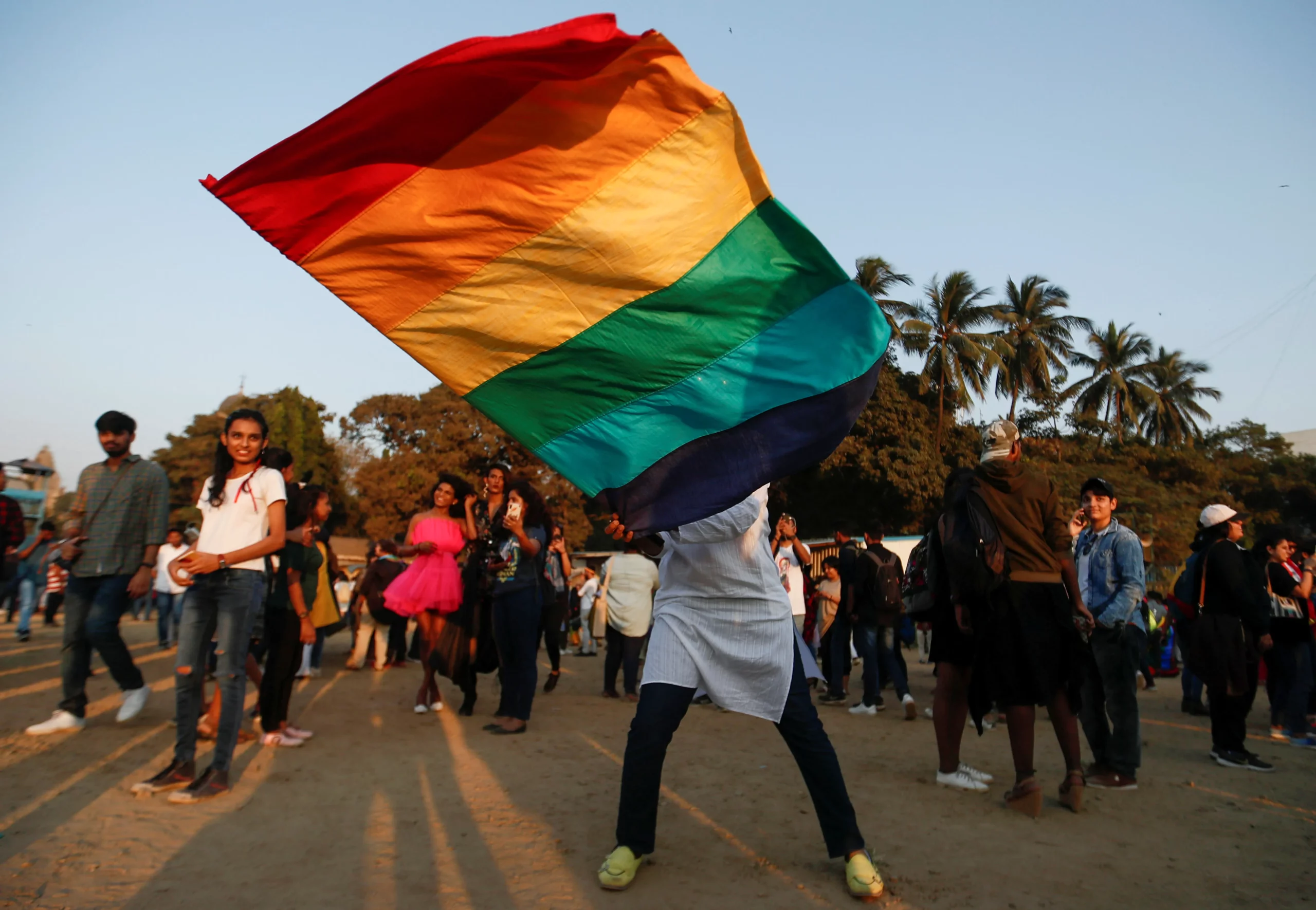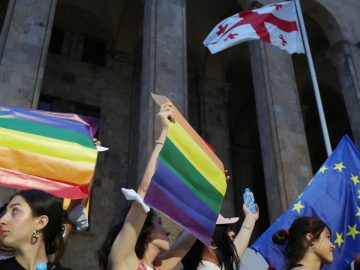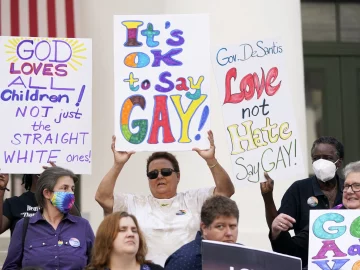The Supreme Court of India has declined the proposal for the legalization of same-sex marriage, underlining the significance of upholding the rights of LGBTQ+ individuals. A panel of five judges from the Supreme Court concluded that such a decision should fall within the purview of Parliament, the primary legislative authority in the nation, and that amendments to the existing Marriage Law were outside their jurisdiction.
In India, over 21 million people, constituting more than 1.5% of the population, openly identify themselves as part of the LGBTQ+ community, with the actual number potentially being even higher.
The Indian government has expressed its opposition to legislative alterations aimed at legalizing same-sex marriage, characterizing the arguments in favor of the proposition as “reflective of urban elite perspectives” and contending that they do not align with the traditional Indian family structure of husband, wife, and children.
The viewpoints among the Supreme Court judges were divided with a ratio of 2:3. Chief Justice Dhananjaya Chandrachud, in his concluding statement, emphasized that “the concept of marriage lacks a universally applicable definition” and argued that the matter of recognizing and regulating same-sex marriage should be entrusted to Parliament and state legislatures.
According to his perspective, the institution of marriage primarily gains legal significance through its regulation by the state and the provision of certain material benefits. In this context, the court does not possess the authority to make determinations regarding this institution, as the country’s Constitution does not explicitly establish an individual’s direct right to marriage, unlike, for example, the right to life and personal liberty.
Nonetheless, Justice Chandrachud underscored that certain facets of marital relationships reflect constitutional values, including the right to human dignity, life, and personal liberty. He also highlighted that the court should refrain from intervening in policy matters and should not have the authority to amend the Special Marriage Act.
The second most senior judge in the Supreme Court, Sanjay Kishan Kaul, underscored that while same-sex relationships have been acknowledged in India since ancient times, legal recognition has only been extended to unions between individuals of different genders.
Additionally, he emphasized that while the court cannot confer the right to marry upon LGBTQ+ citizens, it does possess the authority to provide recommendations to the government. Notably, he stressed the importance of ensuring that the rights of same-sex couples are safeguarded in accordance with the principles enshrined in the Constitution.
Multidirectional emotions: disappointment and approval in connection with the Supreme Court decision

The reaction to the Supreme Court’s ruling has been diverse and mixed. Those directly impacted by these developments expressed natural disappointment.
“We pay the same taxes as heterosexual couples and encounter the same, if not more, challenges. Yet, we still feel like second-class citizens,” voiced Archie Dutt, a gay student from Delhi.
Pia Chanda, who has been living with her partner for 34 years, criticized the Supreme Court for essentially “shifting responsibility” to Parliament and evading making its own decisions.
However, lawyer and writer Tanushree Bhalla believes that the court acted in accordance with the law and hopes that “the government will heed the court’s recommendations and take the necessary measures to put an end to the discrimination faced by LGBTQ+ individuals on a daily basis, both in legal matters and in everyday life.”
She expressed optimism that the legal framework will evolve in step with societal progress. Adish Aggarwal, President of the Supreme Court Bar Association, partially echoed her sentiments. He expressed satisfaction that the court aligned with the government’s stance, asserting that the matter of legalizing same-sex marriage falls beyond the court’s jurisdiction and should exclusively be determined by the Indian Parliament.
However, it’s noteworthy that even prior to the decision, he had voiced opposition to the prospect of legalizing same-sex marriage, deeming it incompatible with “the prevailing system in India.”
Many activists advocating for the rights of sexual minorities had hoped that, if not marriage, at least civil unions for same-sex couples would become lawful following the court’s ruling. Nevertheless, the Supreme Court denied them this opportunity, emphasizing that this issue should also be left to parliament’s discretion. Additionally, the court did not permit same-sex couples to formally adopt children.
Although the judges held differing opinions, they all arrived at the same consensus that legislative amendments fall under the purview of parliament, with the court’s role solely being the interpretation of laws.
While Chief Justice Chandrachud and Justice Kaul held the view that it is the government’s duty to ensure LGBTQ+ citizens are granted “a complete spectrum of rights and privileges” on par with those enjoyed by heterosexual couples, Justice Bhat dissented, arguing that such demands should not be placed on the state. The second unanimous decision was to endorse the government’s proposal to establish an expert panel to examine the expansion of LGBTQ+ rights.
Recommendations to the government and the police

Towards the end of the proceedings, Justice Chandrachud presented a set of recommendations to the government, which included the following key points:
Guarantee that the queer community is shielded from discrimination based on their gender identity or sexual orientation.
Ensure that LGBTQ+ individuals face no discrimination when accessing goods and services available to all other members of society.
Undertake initiatives to enhance public awareness about LGBTQ+ individuals and their identity, emphasizing its naturalness and dispelling misconceptions of it being a mental disorder.
Establish a dedicated service accessible to LGBTQ+ citizens who have encountered persecution or violence in any form.
Publish information detailing the availability of shelters for LGBTQ+ citizens in all regions, offering them refuge in instances of violence or discrimination.
Put an immediate end to practices by medical professionals or others aimed at altering gender identity or sexual orientation.
The police also received a list of recommendations, including the following directives:
Prohibit the harassment of same-sex couples through summons to police stations or home visits solely for the purpose of verifying their gender identity or sexual orientation.
Respect the choices of queer individuals who do not wish to return to their families.
When queer individuals approach the police with complaints of domestic harassment, the police are mandated to investigate the legitimacy of these complaints and ensure the personal freedom and safety of the complainants.




